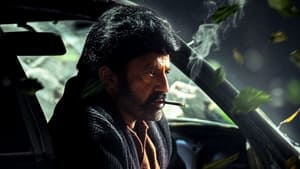
Video Sources 773 Views Report Error

Synopsis
Daaku Maharaaj is a strange but true story of a man who was called both a dacoit and a saint. People still talk about his life, full of mystery, fear, faith, and surprising real events.
He was feared like a dacoit, worshipped like a saint—Daaku Maharaaj was no ordinary man. His story blurs the line between crime and divinity, leaving people wondering: was he a sinner, a savior, or something more?

The Untold Story of Daaku Maharaaj
Long ago, there was a small village near a thick, silent forest. Life in the village was not easy — people were poor, roads were broken, and wild animals often came near homes. But one name was whispered more than any other: Daaku Maharaaj.
At first, people were afraid of him. He was called a daaku — a dacoit — someone who robbed travelers and attacked the rich. Many believed he lived deep inside the forest in a hidden cave. He would come out at night, cover his face, and disappear before sunrise. But there was something strange about him. Unlike other bandits, Daaku Maharaaj never hurt poor people. In fact, he helped them in quiet and unexpected ways.
A Robber with a Kind Heart

One evening, an old farmer sat crying under a tree near the forest. His daughter was very sick, and he had no money for her medicine. Just then, a shadow appeared from the trees. It was Daaku Maharaaj. Without a word, he placed a small cloth bag in the farmer’s hands and disappeared into the darkness. Inside the bag were gold coins.
The next morning, the farmer rushed to the town doctor. The daughter was saved. This was the first real story people told — and soon, more stories followed.
A widow found food at her door every full moon. A poor child who had no books found a schoolbag on his doorstep. A shopkeeper who lost everything in a fire found money under a stone near the river. No one saw who did it — but everyone believed it was Daaku Maharaaj.
From Fear to Faith
As the stories grew, fear began to turn into faith. People stopped calling him just Daaku. They started calling him Maharaaj — a title of respect. To many, he was no longer a criminal. He was a protector, a man of justice.
Some villagers believed he had powers. They said he could walk through fire, disappear in smoke, and even talk to wild animals. A few said he had been blessed by a holy man, and was sent to help the poor and punish the greedy.
The police tried many times to catch him, but failed. Officers entered the forest and got lost. Vehicles broke down. Dogs refused to go further. Some said they heard strange sounds — like a voice warning them to leave.
Daaku Maharaaj became more than a man. He became a legend.
The Great Disappearance
Then, one day, he was gone.
There were no more sightings, no more gold bags, no more forest shadows. Some said he left the jungle to become a sadhu, a holy man. Others believed he died in silence, far away from the world. A few believed he still lived deep in the forest, watching over the people he once protected.
To this day, in parts of central India, people remember Daaku Maharaaj. In some villages, they light a small diya (lamp) near trees or old stones and whisper prayers. Children grow up hearing his name — not with fear, but with wonder.
They ask, Was he real?
The old people smile and say, “He comes only for those who need him most.
Daaku Maharaaj: The Legend Lives On

The story of Daaku Maharaaj is not written in history books. It lives in the hearts of people — in stories shared around fires, in prayers said during hard times, and in hopes that someone, somewhere, still watches over the poor.
He was called a criminal, yet remembered as a saint. His life is a mystery, but his actions spoke of truth, justice, and silent kindness.
Original title డాకు మహారాజ్
IMDb Rating 6 3,532 votes
TMDb Rating 5.2 6 votes
Director
Director
Cast
"Nanaji" Seetharam / Daaku Maharaj
Balwant Singh Thakur
Kaveri
Nandini
Vaishnavi
Govind Gujjar
Krishna Murthy
Shivani
Janaki
Trimurthulu Naidu






























